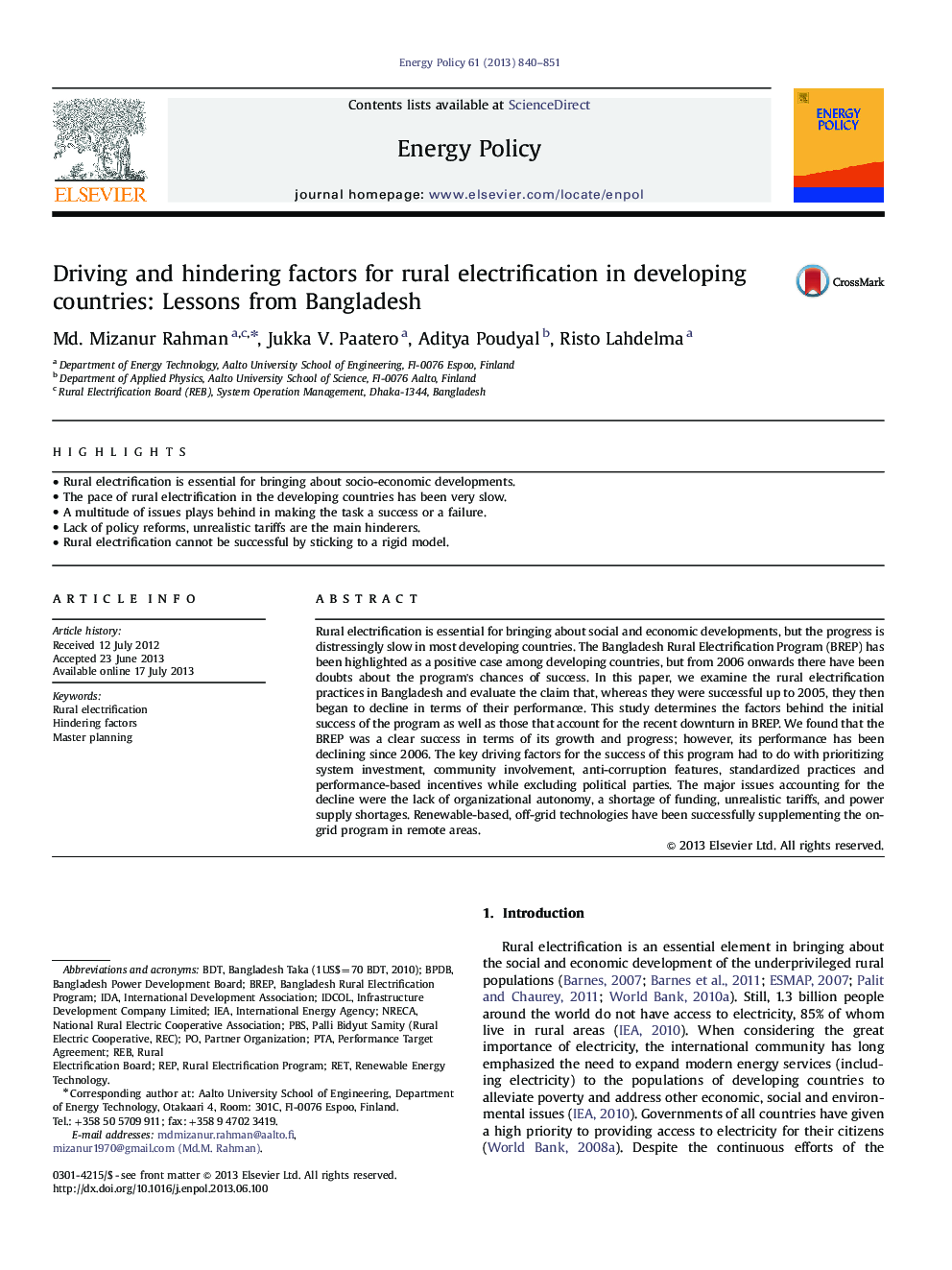| Article ID | Journal | Published Year | Pages | File Type |
|---|---|---|---|---|
| 7404984 | Energy Policy | 2013 | 12 Pages |
Abstract
Rural electrification is essential for bringing about social and economic developments, but the progress is distressingly slow in most developing countries. The Bangladesh Rural Electrification Program (BREP) has been highlighted as a positive case among developing countries, but from 2006 onwards there have been doubts about the program's chances of success. In this paper, we examine the rural electrification practices in Bangladesh and evaluate the claim that, whereas they were successful up to 2005, they then began to decline in terms of their performance. This study determines the factors behind the initial success of the program as well as those that account for the recent downturn in BREP. We found that the BREP was a clear success in terms of its growth and progress; however, its performance has been declining since 2006. The key driving factors for the success of this program had to do with prioritizing system investment, community involvement, anti-corruption features, standardized practices and performance-based incentives while excluding political parties. The major issues accounting for the decline were the lack of organizational autonomy, a shortage of funding, unrealistic tariffs, and power supply shortages. Renewable-based, off-grid technologies have been successfully supplementing the on-grid program in remote areas.
Keywords
Related Topics
Physical Sciences and Engineering
Energy
Energy Engineering and Power Technology
Authors
Md. Mizanur Rahman, Jukka V. Paatero, Aditya Poudyal, Risto Lahdelma,
